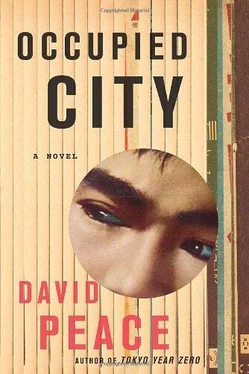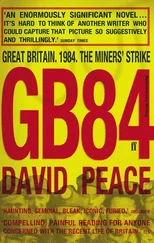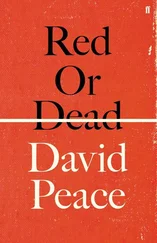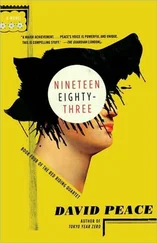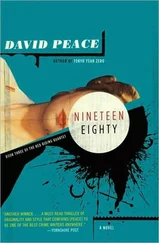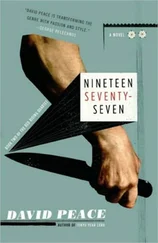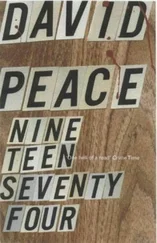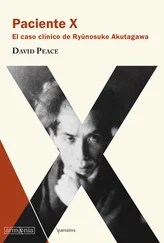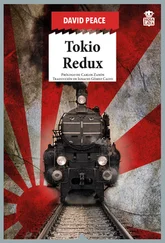After a short while, my father resigned from the Military Police and took a position in the Sapporo City Office. At this time, my mother began to run a stationery shop from our house.
Soon after I had enrolled in junior high school, my father was again transferred, and my family moved to the city of Otaru, Hokkaido, where many of them still remain to this day.
In elementary school, I had become interested in art and this became my sole interest and one passion in my junior high school, where some of my teachers recognized and encouraged my talent in drawing and in painting. And even at such an early age, I began to show my work in public exhibitions.
My father, though, with his military background and stern traditions, was disappointed in me and my failure to fulfil his expectations for me. He would have preferred that I study kendo and not painting, with a view to a military career not an artistic one. This brought great tensions to our household and to our relationship. I believe this pressure and stress caused the neurosis with which I was diagnosed and which in turn led to my two-year absence from school.
However, during my enforced absence from junior high school I was able to continue my studies of art and to further develop my talents. And as a result of my own private studies, and thanks only to the kindness and generosity of my mother, but very much against the wishes of my father, I was able to enrol in the Institute for Watercolour Painting in Tokyo.
At school in Tokyo, I experienced a sense of freedom and fulfilment which I had not felt before. However, I also greatly missed my mother and was always aware of my filial responsibilities. So upon graduation from the Institute for Watercolours, I returned home to Otaru and my parents.
I had now reached the age of twenty-four and it was at this time that I met my wife, who was also living in Otaru. However, and for many reasons, both of our parents were opposed to our marriage and so we were forced to elope to Tokyo. But through my wife’s devotion and entreaties, she was able to persuade our parents to accept our marriage and we were then able to return to Otaru. And again, thanks to my wife’s devotion and also her sacrifices, we were able to set up our own household from which I tried to make a living, privately teaching drawing and painting.
I now look back upon this period as one of simple happiness and blissful stability, for it was during this time that our first child was born and our life was at its best. At that time, however, I did not appreciate such happiness and stability. My pride and my vanity sought a wider recognition for my talent and my works, as well as bestial cravings for fame and money. So it was that, in November 1931, I moved back to Tokyo again. And so it was that things have turned out the way they have. Would that I had been content with what life had given me in Otaru. Would that I had not returned to Tokyo. But now, of course, it is too late for such regrets.
At first, I lived in my grandmother’s house in Koishikawa. But then, soon after, I was able to set up my own house in Nishigahara, where I was later joined by my wife and child. The portents and signs, however, were already visible, had I had the eyes and senses to see and read them; our new residence was soon burgled and I became consumed once again by neurosis and by paranoia. I insisted we move, this time to Komagome, where I also insisted our new house be next to the local kōban .
My art, however, blossomed. I achieved success and recognition for my work, the success and the recognition for which I had so long craved. We were able to buy some land and to construct a new house in Itabashi Ward. At first I shunned the company of other artists and I tried to lead a modest life. However, on moving to Itabashi, I now recognize that something changed within me.
I began to invite other artists to our home and I began to affect the airs of a ‘genius’, of a ‘maestro’, consumed only by his art, caring only for his talent. And I now see, now it is too late, that, after a short while, these traits were no longer affectations but had infected me and would soon ruin me. And also, more tragically, my family.
Some time before, my wife had been bitten by a stray dog and our entire family given vaccinations against rabies. It was the side-effects of this vaccination that some people believe caused my mental deterioration. As I have said, I am not sure. I cannot say. But things now rapidly began to disintegrate. In 1939 I began an affair with a gallery attendant. And later the very same year, our house in Itabashi Ward caught fire and was completely destroyed. And so we were forced to rent another house close by.
In order to deal with the stresses of my adultery and of the fire, I began to undergo shiatsu therapy. And I still believe to this day, that it was this shiatsu therapy which saved my life at this time. For it is also true that at this time I frequently contemplated suicide. No doubt for my ex-wife and for my children, given all that has happened since, it would have been better had I taken my own life then.
For things only continued to worsen.
In the early summer of 1940, the rented house in which we had been temporarily living also caught fire, though the damage was not extensive. However, I had had enough of Tokyo and I insisted that we all move back to Hokkaido in order that I might fully recuperate. So it was that we spent the remainder of 1940 in Hokkaido. Of course, this could not last. The lives of my wife and my children were now firmly rooted in Tokyo, not to mention the audience and patrons for my own work.
But on our return to Tokyo I was immediately arrested by the police and taken to Itabashi Police Station. There I was interrogated on suspicion of arson. And I admit, though I was innocent, I almost confessed. However, after one day, I was released.
My troubles in Tokyo, though, were far from over. My mistress had learned of my return to Tokyo and now visited our family home. She had come seeking consolation money. I paid her the money she wanted and the relationship was ended. However, this incident undoubtedly caused great distress to my wife.
But blinded by my own arrogance, by my own insensitivity, I learned no lessons from the pain I caused then and I merely continued in my hurtful and my selfish ways, arrogant and insensitive.
For soon I started another adulterous affair.
At around this time, the war also began.
During the years of the war, my family and I moved many times, sometimes through evacuation orders, sometimes through economic necessity. By the end of the war, my wife and my children were again living in Hokkaido. I had remained in Tokyo, making trips back to Hokkaido to visit my family.
These were hard years for everybody and my family was no exception, though they all survived.
With the end of the war, my family gradually returned to Tokyo. My son came first, and then my wife and my daughters. By 1947 we were all reunited and living in Nakano Ward.
Of course, Tokyo was a very different, very damaged city. However, my life continued much the same as it had done before. I continued to paint and to try to sell my work, supplementing my income with various other activities but often reliant on the money which my children were now able to earn.
My affair also continued.
This brings me now to the winter of 1947-48 and the time of the crimes of which I was accused, convicted and sentenced to die.
Of course, I have been over this period and these events many times with many people. But once again I must state, I give this account now, not in the hope of saving my own life, only in the hope of sparing my family further shame.
As well as the murders, attempted murders and robbery at the Teikoku Bank on 26 January 1948, I was also convicted of forgery and fraud. These crimes of forgery and fraud are the crimes of which I am guilty and of which I want to speak first as they are also crimes which have a bearing on the Teikoku Bank case.
Читать дальше
